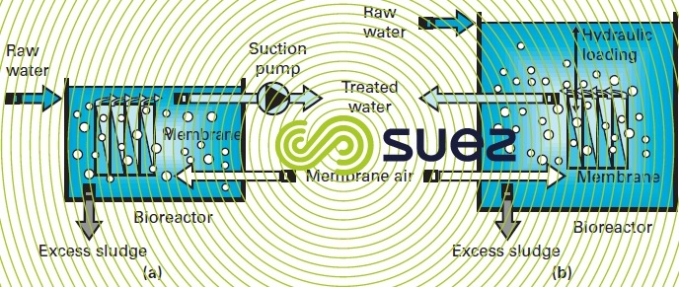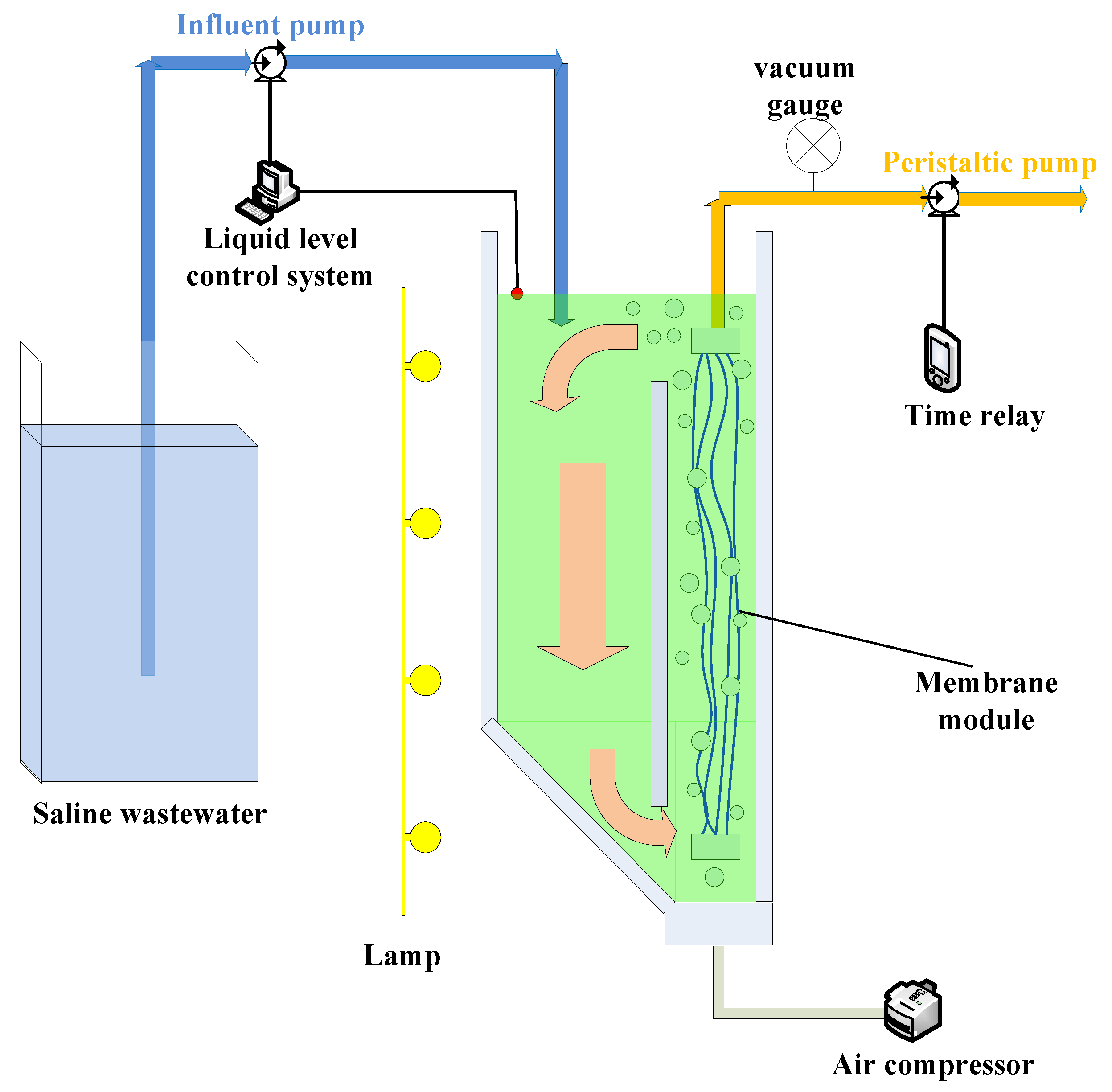Membrane Bioreactor as a Sustainable Solution for High-Volume Wastewater Treatment
Membrane Bioreactor as a Sustainable Solution for High-Volume Wastewater Treatment
Blog Article
Exactly How Membrane Bioreactors Are Transforming Water Purification Equipments
The introduction of membrane bioreactors (MBRs) stands for a substantial advancement in the area of water filtration, combining organic treatment procedures with cutting-edge membrane layer filtering technologies. This integration not just improves the quality of treated effluent but also addresses city area restraints, making MBRs particularly suitable for densely populated areas. As international water shortage intensifies, the function of MBRs in assisting in drinkable water reuse and sustainable water monitoring becomes progressively essential. The ramifications of this technology expand past performance-- what opportunities and challenges lie in advance for its widespread implementation?
Overview of Membrane Bioreactors
Membrane layer bioreactors (MBRs) stand for a significant advancement in water filtration modern technology, as they combine biological therapy procedures with membrane filtering. This combination improves the efficiency of wastewater treatment by using microbes to deteriorate organic pollutants while at the same time using semi-permeable membranes to different cured water from put on hold solids and pathogens.
The MBR system commonly contains an organic reactor where the microbial population metabolizes contaminants, adhered to by a membrane purification device that retains biomass and enables only clean water to pass through. This dual performance leads to greater effluent top quality contrasted to conventional treatment techniques. MBRs can be operated in both set and continuous circulation settings, providing flexibility in style and application.
They additionally make it possible for the recuperation of water for reuse, therefore contributing to water sustainability initiatives. In general, MBRs are at the center of improving water treatment efficiency and high quality, showcasing the possibility for ingenious options in ecological monitoring.
Benefits of MBR Modern Technology
The combination of biological therapy with membrane layer purification supplies various benefits for water filtration procedures. One of the primary benefits of Membrane layer Bioreactor (MBR) innovation is its capability to properly eliminate both natural and not natural pollutants, bring about top notch effluent. The membrane layers serve as a physical obstacle, avoiding suspended solids and virus from travelling through, which boosts the total safety and security and dependability of cured water.
Additionally, MBR systems call for a smaller impact compared to standard treatment methods, permitting a lot more reliable room usage. This compact design is especially advantageous in metropolitan settings where land is limited. MBRs also demonstrate operational adaptability, accommodating varying influent high qualities and circulation prices without considerable efficiency degradation.
Moreover, the process uses enhanced nutrient elimination abilities, specifically for nitrogen and phosphorus, which are crucial for protecting against eutrophication in receiving waters. The decreased sludge manufacturing connected with MBR technology likewise translates to reduce disposal prices, making it a cost-efficient option in the future - Membrane Bioreactor. On the whole, the benefits of MBR modern technology placement it as a leading choice for innovative and lasting water purification systems, attending to both ecological and financial issues
Applications in Water Filtration
Applications of Membrane Bioreactor (MBR) modern technology in water filtration are varied and impactful, dealing with numerous therapy requires throughout multiple sectors. MBRs properly combine organic treatment procedures with membrane layer purification, making them excellent for local wastewater treatment, commercial effluent management, and even drinkable water reuse initiatives.
In community settings, MBRs are progressively employed to improve the high quality of dealt with wastewater, permitting compliance with strict discharge policies and assisting in the recycling of water for watering and non-potable uses. Their compact design additionally makes them appropriate for urban environments where space is limited.
Industrially, MBR modern technology is made use of to treat process water and wastewater, particularly in industries such as food and drink, pharmaceuticals, and fabrics. By properly eliminating impurities and put on hold solids, MBRs aid markets reduce ecological impacts while recovering important resources from wastewater streams.
Furthermore, MBRs are getting grip in decentralized water therapy applications, where small-scale systems can be deployed in try this web-site remote areas or establishing regions. This flexibility makes it possible for neighborhoods to accomplish lasting water monitoring services, boosting access to tidy water while decreasing reliance on conventional treatment approaches.
Situation Studies and Success Stories

In one more example, a textile production center in Bangladesh took on MBR technology to address its wastewater challenges. The system decreased chemical oxygen demand (COD) levels from 1,200 mg/L to much less than 100 mg/L, thus fulfilling governing standards and considerably minimizing ecological effect.
The University of Cape Community's MBR setup has actually proven reliable in treating greywater for non-potable reuse on school. This job not only conserves potable water however additionally acts as an instructional version for lasting techniques.
Additionally, a fish and shellfish handling plant in Norway made use of MBR technology to deal with effluents containing high levels of raw material, attaining over 90% contaminant removal. These study underscore MBR innovation's convenience and its essential duty in improving water high quality throughout diverse applications.
Future of Water Therapy Solutions
As worldwide water scarcity and pollution challenges increase, innovative water treatment services are ending up being significantly necessary to guarantee lasting accessibility to tidy water. The future of water therapy lies in the assimilation of innovative innovations that boost the efficiency and efficiency of purification procedures. Membrane layer bioreactors (MBRs) go to the leading edge of this evolution, combining organic therapy with membrane purification to produce high-quality effluent suitable for numerous applications.

Arising trends such as source healing from wastewater, including nutrients and energy, will certainly further transform therapy centers into environmentally friendly centers. Furthermore, advancements in nanotechnology and membrane products guarantee enhanced efficiency and durability of filtering systems.

Conclusion
Their role in potable water reuse and lasting water administration highlights their importance in addressing international water deficiency challenges. Continued study and advancement will better improve the efficacy and fostering of MBR technology, making certain a durable future for water treatment solutions.
The emergence of membrane bioreactors (MBRs) stands for a substantial innovation in the field of water filtration, merging biological therapy processes with advanced membrane layer filtration innovations. As global water scarcity browse this site increases, the duty of MBRs in facilitating drinkable water reuse and lasting water management comes to be significantly vital. They also make it possible for the recovery of water for reuse, hence adding to water sustainability efforts.As international water shortage and air pollution challenges increase, ingenious water therapy remedies are ending up being significantly necessary to make certain lasting access to clean water. Their function in safe and clean water reuse and lasting water administration highlights their significance in attending to worldwide water deficiency challenges.
Report this page